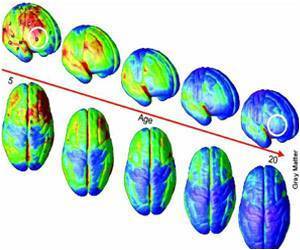
The brain is believed to engage in two types of decision-making processes-deliberative and automatic or habitual.
While the mechanisms behind these behaviours are distinct, the researchers have had difficulty separating them behaviourally as they both typically pursue common ends.
The researchers on the neuron study sought to differentiate both types of decision making by studying how humans' decisions and brain activity, measured using functional magnetic resonance imaging (fMRI), were influenced by previously received vs. potential future rewards in a gambling game.
In the experiments, the subjects were asked to make two sets of choices, with a monetary reward given if they made certain selections.
By analysing how subjects adjusted their choices based on winning, or failing to win, money, the researchers found that a habitual decision was distinct from a goal directed one.
Advertisement
Despite the distinctions between goal-directed and habitual behaviours, the researchers found that the brain activity was similar for both types of action.
Advertisement
The findings appear in the latest issue of the journal Neuron.
Source-ANI













